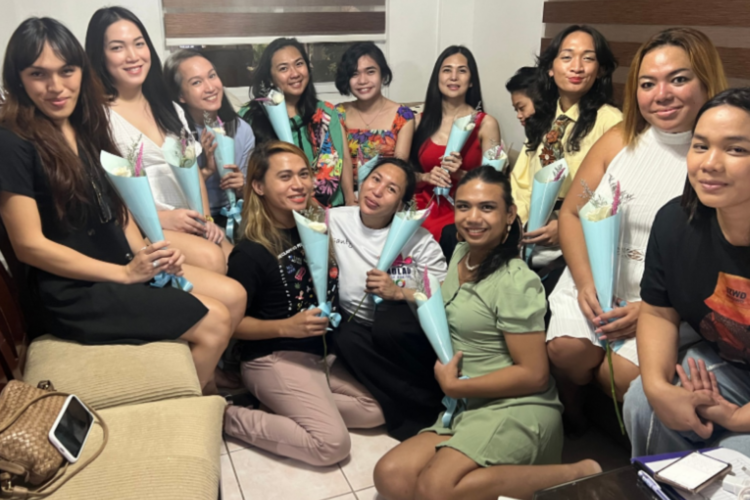Trans rights on the line: De facto situation of transpinays in relation to the right to freedom of opinion and expression in the Philippines
The Society of Trans Women of the Philippines (STRAP) is the pioneer support group and human rights advocacy organization of transpinays (Filipina trans women and transfeminine people) in the Philippines.
Despite the progress in combating homophobia, transphobia and gender bias, with the pass of the Safe Spaces Act (2019) and the Philippine HIV and AIDS Policy Act, it is deeply concerning, however, that freedom of opinion and expression has been co-opted to perpetuate gender-based discrimination, hate speech, and violence against marginalised groups, particularly women, trans, nonbinary and gender non-conforming human rights defenders.
STRAP, supported by GATE, submited this report to provide information to the Special Rapporteur on freedom of opinion and expression on her country visit to the Philippines on the de facto situation of transpinays (trans women) nonbinary, gender non-conforming, and LGBQIA+ people in relation to the fulfillment and/or violation to our right to freedom of opinion and expression.
Position of transpinays (trans women and transfeminine people) in experiencing intersectional discrimination in relation to freedom of opinion and expression
Throughout the precolonial Philippine islands, the presence of transpinay spiritual leaders popularly known as asogs, babaylans and catalonans have been recorded in our theirstory. Unfortunately, it was through colonisation and genocide that our rich gender diverse communities were pushed to the margins up to this day.
In the Philippines, transgender Filipinos have no mechanisms to legally change their name and gender marker that is in line with their current lived gender. Despite of this, people continue to use their lived names in their daily lives. This puts them at a higher risk of violating the following laws; Anti-alias Law or RA 6085, Commonwealth Act no. 142 also known as the Act to regulate aliases, and Article 178 of the Revised Penal Code which covers the improper use of names. These laws could put trans people in prisons with a maximum sentence of five years for using our lived name consistently.
Anti-rights rhetoric masked as freedom of opinion and expression are against substantial gender equality
Religious legislators have used anti-rights religious rhetoric to deprive TLGBQIA+ people representation and protection, and are trying to pass bills that use the language of freedom of opinion and expression to sow hate speech against the TLGBQIA+ community.
There are also documented cases of modules and school curricula perpetuating harmful gender stereotypes that affect gender nonconforming students and their families negatively. Harmful gender stereotypes have been weaponised to bully, humiliate, and instill a culture of queerphobia in schools and education settings.
In light of such situations, STRAP recommendations to the Special Rapporteur on freedom of opinion and expression included, but are not limited to:
- Pass legislation for a legal gender recognition for trans and intersex people;
- Prohibit and criminalize sexist, misogynist and other forms of gender-related hate speech including TLGBQIA+phobic remarks;
- Publicly condemn TLGBQIA+phobic discourse and gender-based violence against TLGBQIA+ community
- Ensure that human rights defenders, including TLGBQIA+ people can freely carry out our advocacy for TLGBTQIA+ human rights and exercise their rights to freedom of expression, peaceful assembly and association free from harassment, surveillance or undue restrictions, including arbitrary arrest and arbitrary prosecution;
- Allow students to wear uniforms that affirm their current gender and provide measures to prevent the policing of gender presentation of children in public and private spaces.
You can read the complete submission in the publication document.





